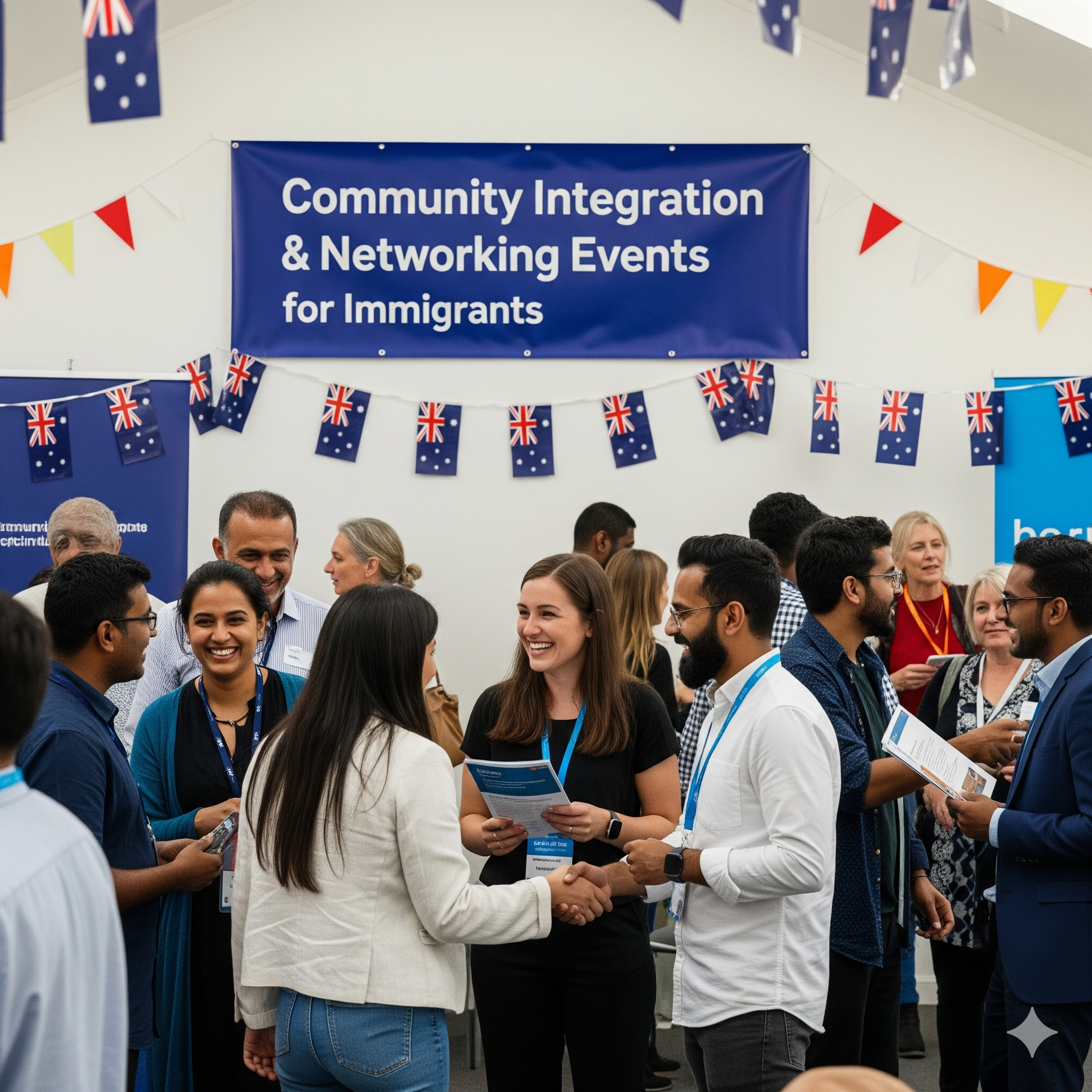Discover key strategies and events that support community integration and networking for newcomers, migrants, and immigrants.
Introduction
Moving to a new country brings both excitement and uncertainty. Studies show successful community integration for immigrants accelerates social belonging and access to opportunities. Networking events for newcomers and support groups make it easier to meet people after migration and build lasting connections.
Building Community: Integration Pathways for Immigrants
Community integration for immigrants thrives on participation, visibility, and access to resources. Many cities and organizations offer a range of community programs for new immigrants, from language classes and workshops to cultural festivals and public forums. Attending local events and joining community centers helps newcomers understand local norms, receive guidance, and showcase their own culture.
Practical integration often relies on grassroots organizations and volunteers who organize multicultural dinners, citizenship ceremonies, and town halls focused on inclusion1. Such events allow residents and newcomers to interact, share experiences, and foster a sense of belonging. In many regions, collaborative efforts between government, nonprofits, and immigrant associations ensure welcoming spaces and continued support throughout each newcomer’s journey.
Unlocking Opportunities: Effective Networking Events for Newcomers
Networking events for newcomers come in all shapes and sizes—job fairs, mixers, workshops, and informal social gatherings. These gatherings are essential migrant networking opportunities that help newcomers expand their personal and professional circles while learning vital skills such as job searching and local workplace culture.
For professional advancement, immigrant meetups and events often include leadership workshops, resume clinics, and mentorship programs organized by industry groups or immigrant networks. Platforms like Meetup and Eventbrite host a variety of events, from casual coffee meetups to business networking nights and panel discussions on career advancement. Attend these to meet employers, learn about local job markets, or find partners for business ventures.
For settling in socially, attending group activities—like community volunteering, hobby clubs, and local tours—offers valuable social support for migrants and helps overcome isolation often experienced after migration. Connecting through shared interests provides common ground and makes it easier to integrate into a new community.
Tips to Maximize Networking:
- Sign up for newsletters from local immigrant support groups.
- Join community programs and participate in events for new immigrants.
- Attend both formal (career fairs, workshops) and informal (meetups, social clubs) events to broaden your network.
- Offer to volunteer at local gatherings or community centers to meet people and give back.
Overcoming Barriers: Social Support and Belonging
Migrant integration is strongest when newcomers feel supported—emotionally, culturally, and practically. Social support for migrants can come from both formal networks (social workers, peer mentors, community organizations) and informal ones (friends, family, neighbors).
Community engagement helps address practical challenges, such as navigating public services, accessing health care, and understanding legal rights. Events focused on orientation, language practice, and cultural education empower immigrants to overcome language or cultural barriers and quickly feel at home.
It is crucial that both the host community and newcomers actively participate. Events designed with input from migrants tend to be more relevant and effective, as they directly address immediate needs and foster a sense of shared ownership in integration efforts.
Conclusion
Active participation in community integration programs and networking events for newcomers builds social and professional ties, eases adaptation, and accelerates full participation in society. To integrate into a new community, seek out local events, connect with others, and don’t hesitate to join or lead initiatives that promote inclusion.


